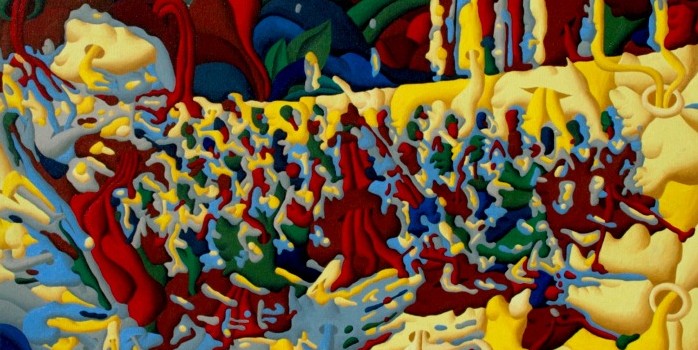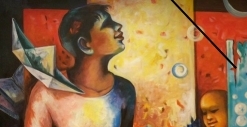In 1990, after the fall of the Berlin Wall, Francis Fukuyama famously proclaimed “the end of history”, that is the eventual victory of Western-type democracy over all other types of political systems. Since then China, Russia, and radical Islam have all tried to prove him wrong.
China
China’s soaring economy makes it a reliable trade partner and a relatively peaceful neighbor, and although any opposition at home is suppressed ruthlessly, its foreign policy relies more on economic influence and silent military prowess than on direct aggression. Their one-party political system, which prizes loyalty and secrecy has brought impressive advances in all areas of life, and showed that capitalism can be applied successfully within authoritarian system. But China’s stability depends heavily on its continuing economic growth and its peacefulness on its ability to deliver progress without providing political reforms. As the continuing threats to Taiwan’s independence, the brutal trampling of Tibet’s desire for autonomy, the slow but firm move to bring Hong Kong under Beijing’s control and the increasingly asserted claims over the near-entirety of the South China Sea have all shown, China’s image as a responsible global power may be undeserved.
Russia
In Russia’s collective memory, the chaos of the 90’s that followed the fall of USSR is firmly tied with Yeltsin’s attempt at liberal democracy, and partly explains people’s disillusionment with it. Putin’s ascend to power marked a new era of soft authoritarianism (“Putinism”), in which freedom of the press and pro-Western orientation were traded for stability and economic growth, fueled by rising oil prices.
Nurtured by Kremlin, the idea that Russia needs to take a “distinct path” and that Western democracy isn’t for Russia, took root in people’s minds. Devoid of any real ideology, Putin’s kleptocratic political system, controlled by a small circle of some twenty “siloviki” (former military and ex-KGB officers, all close friends of Putin), is preoccupied mainly with personal wealth accumulation. For the first 10 years of his rule, Putin was busy concentrating power, suppressing opposition and creating loyal media. But as long as he played by the international rules, he was considered a pragmatic and predictable politician in the West.
But the opposition protests of 2011, the growing burden of state-sponsored mega-corruption on the economy, the slowing growth and eventually the Euromaidan revolution in Ukraine (which expressed Ukraine’s desire to turn to Europe at the expense of Russia’s imperial ambitions) all meant that Russia’s distinct path was taking a turn for the worse. Putin’s answer was the annexation of Crimea, instigation and sponsorship of war in Eastern Ukraine, and a full-blown propaganda machine. The always popular among authoritarians serving of aggressive expansion (under the pretense of defending “your own people”) followed by nationalistic intoxication. All this to hide the simple fact that Russia’s distinct path is not much more than a volatile oil-pumping business that enriches Putin’s friends at the expense of Russia’s future. Falling oil prices, West-imposed sanctions, recent currency collapse and the expected slide into a deep recession mark the end of stability and growth for Russia. Which means that Putin’s regime will need more aggression, more nationalism, and more war to feed the frenzied delusion of “empire restoration” on which it has come to depend.
Islam
While in Europe, Latin America and parts of Asia the 20th century has brought significant political reforms and democratization, most of the Muslim world has been left behind. People in the Middle East and North Africa had to live with corrupt governments that had little interest in advancing their nations, whether Saudi, Moroccan and Persian-gulf monarchies or authoritarian military rulers of Egypt, Libya and Syria. While in many other places the advance of mass-production and consumerism trickled-down to improve the lives of all classes of society, in Muslim world it was often seen as the poisonous influence of the West, that corrupts their governments without making the lives of simple people better. Dissatisfied with being poor, badly-governed satellites of global powers, people turned to the one thing they saw as an alternative: Muslim Fundamentalism. At once a reaction to European colonialism, social injustice and political corruption, Muslim Fundamentalism promised a return to the purity of Islam – to the golden times of the prophet, when Islam was a proud and victorious force in the world, not the religion of the poor and the dispossessed.
Wahhabism that grew in Saudi Arabia sought to purify Islam of what it saw as idolatry practices, such as visiting the tombs of the prophet’s relatives. It also radicalized Islam by making many recommended practices (such as five daily prayers) into strict requirements and declaring non-Wahhabi Muslims as infidels. Sponsored by Saudi oil wealth, it has spread throughout the world and in many places has become the golden standard of Islam. But while becoming influential in the Muslim world, it did nothing to energize the economical and political stagnation in the Middle East. The Muslim Brotherhood movement that grew in Egypt brought a new model of political activism combined with Islamic charity work. But the rule of Hamas (Palestinian offspring of Muslim Brotherhood) in Gaza and the short-lived Brotherhood’s reign in Egypt brought anything but prosperity. The biggest victory of Islamism – the Muslim revolution in Iran has substituted a somewhat repressive but modernist Shah with fundamentalist Shiite leadership. But it brought not only unprecedented political repression but also a continuing economic depression. Double-digit inflation and unemployment (and that despite having 10% of world’s oil) cause educated Iranians to flee the country and makes others long for the economy during Shah’s reign.
Political Islam has failed to provide a successful alternative to the Western model, so military Islam has come in its place. Where political reorganization and suppression failed, direct aggression sought to repair. The history of it is well known: what started as a call to Muslims to fight the Soviets in Afghanistan has gradually evolved into a perverse idea of a global Jihad. The model of volunteer pan-Islamic fighters that flock to help their Muslim brothers, which originated with the Mujaheddin in Afghanistan was copied and scaled. It’s true that US foreign policy, namely CIA’s assistance to dictators, its military bases in Saudi Arabia and especially the first Iraq war has antagonized many in the Middle East. But the scale of global Muslim extremism outgrew even the fight against American Imperialism and Israeli occupation. Al-Qaeda, Taliban, Boko Haram, ISIS – a succession of increasingly radical and violent groups sow death everywhere from Sydney and Mumbai to Nigeria and Spain. And the more violent they are, the more desperate is their cry for attention and significance in a world that has moved on and left them behind.
***
So, what do Radical Islamism, Putin’s Russia and communist China have in common? They all believe they can create a successful alternative to the Western democratic model. And the more miserably they fail, the more aggression they unleash on the world, trying to compensate for their inability to compete. The more delusional is the idea and the struggle to create an alternative to a society based on personal freedom, reason and the pursuit of worldly happiness, the more collateral damage its demise brings.


